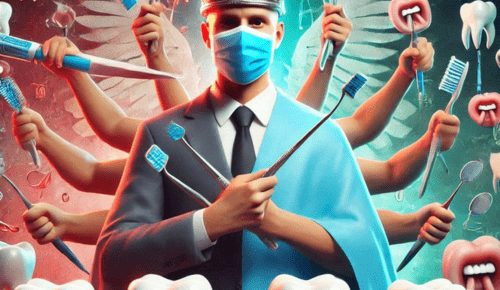
Have you ever had a weird metallic taste in your mouth? This problem is called dysgeusia, which can feel strange and uncomfortable. There are various things that can cause it; some are harmless, while others may require attention. The metallic taste can occur due to certain medicines, bad oral hygiene, or dental problems like gum disease or cavities.
Health issues like allergies, colds, or vitamin deficiencies can also be the culprit. Californians experience warm weather, which might play a part in this problem. Dentists say that your mouth is connected to the rest of your body and overall well-being. Therefore, it is a good idea to look into the matter if your sense of taste changes suddenly.
If you notice a metallic taste, do not ignore it. Visit a dentist in Fairfield, CA, and they can help you find out the underlying cause of the issue. They can also check your oral health for potential issues and suggest treatments for an early intervention. This will help you save money in the long run and avoid spending on extensive dental surgeries.
Common causes of a metallic taste in the mouth
A metallic taste in the mouth, called dysgeusia, can happen because of many things. These things include medicines, dental problems, changes in hormones, and other health issues.
- Medications.
Many medicines can cause a metallic taste. Antibiotics, antihistamines, blood pressure medicines, and chemotherapy drugs are some of the main ones. Antibiotics like amoxicillin and azithromycin can change your sense of taste. They can affect your taste receptors or change how saliva flows.
Antihistamines can cause dry mouth, which can also affect taste. Chemotherapy drugs can change how your taste buds work because they affect the cells in your mouth.
- Dental problems.
Bad dental health is also a culprit of the metallic taste in your mouth. Problems like gum disease and infections can change taste. These issues can cause taste receptors to not work properly. Metal dental fillings, especially those made of silver amalgam, can also release metallic particles into the mouth. It is important to keep up with dental hygiene and regular check-ups.
- Pregnancy.
Pregnancy causes various physiological changes, including a change in taste. This particularly happens during the initial months of pregnancy. Hormonal changes, like higher levels of estrogen and progesterone, can make people more sensitive to taste and cause a metallic taste. Many pregnant people report a sour or metallic taste, which can make eating harder.
- Dry mouth (xerostomia).
Dry mouth, also known as xerostomia, can cause a metallic taste in your mouth. This can happen because of certain medicines, not drinking enough fluids, or health issues like Sjögren’s syndrome. Saliva helps you to determine the taste of food items properly; therefore, when there is less saliva, your sense of taste can be affected.
- Infections and health conditions.
Infections and health problems can also cause a metallic taste. For example, sinus infections can alter smell, which can change how taste is felt. Acid reflux can bring stomach acid into the mouth, causing a bad metallic taste. Kidney disease can cause waste to build up in the blood, which can change how taste is experienced.
- Diet and dehydration.
A bad diet or dehydration can also change how things taste. This is why it is important to eat a balanced diet and drink enough water throughout the day. When you do not eat enough vitamins and minerals that your body requires, it can cause a metallic taste in your mouth. Dehydration can also affect saliva, making your mouth taste worse.
Experiencing a metallic taste in your mouth?
If you are getting a metallic taste in your mouth, and it is persistent, do not make the mistake of ignoring it. Schedule a consultation with your dentist today to determine the underlying cause!